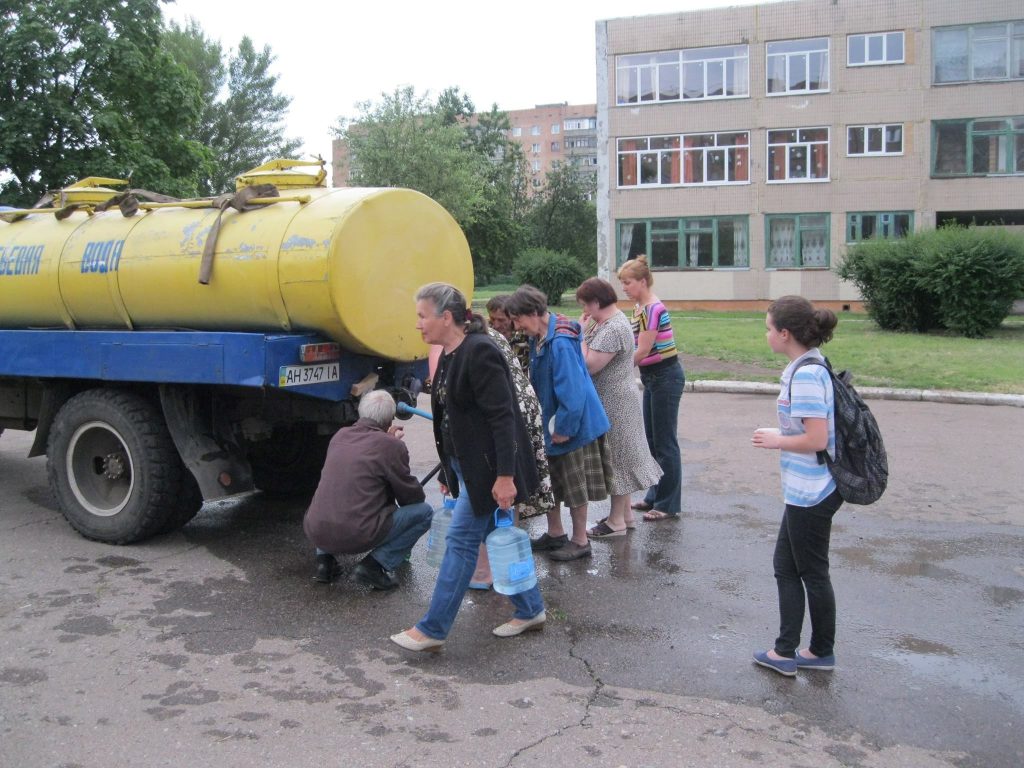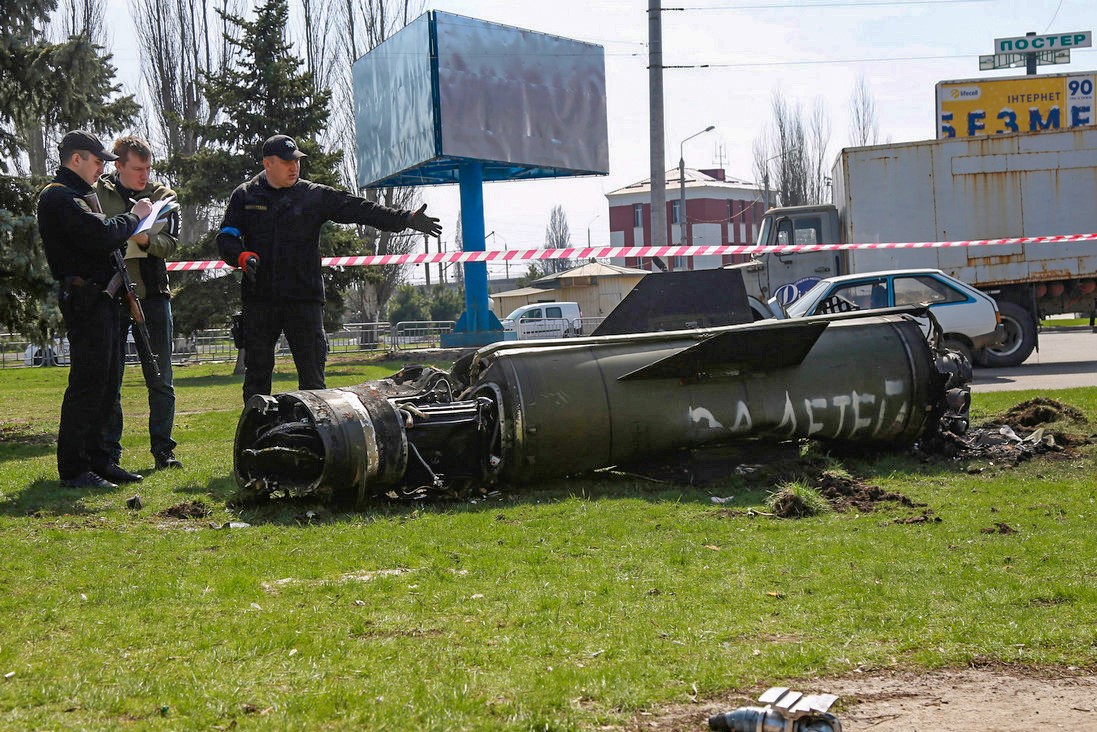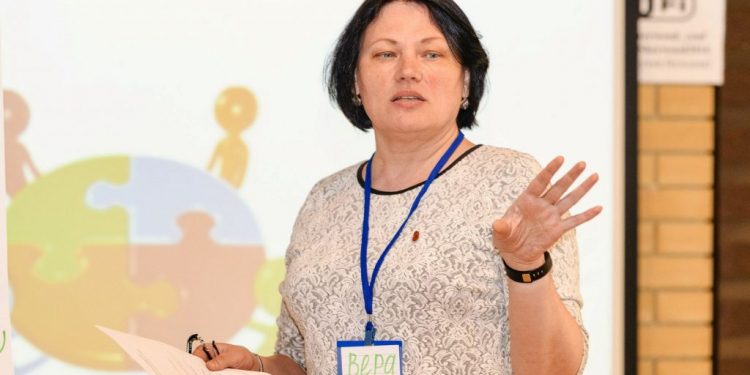Vira Ilyina is originally from Donetsk, a city in Ukraine. She lived most of her life in Kramatorsk, another Ukrainian town. In 2014, when hostilities began, she and her family chose to stay in the city, even though they lived close to a military airport. She endured four challenging months during the occupation and rejoiced when the city was liberated. However, on February 24, 2022, war again knocked on her door.
“When I woke up at 4 in the morning on February 24th from powerful explosions, I understood everything immediately.”
Vira Ilyina spent nearly 30 years in journalism. She worked extensively for TRK “Region” and as a correspondent for Technopolis in Kramatorsk. She recently, headed the PR department at the Donetsk Chamber of Commerce and Industry. However, due to the intense war, she had to relocate from Donetsk to Ivano-Frankivsk, where she continued her work.
— The war in Donetsk started in 2014. At that time, we had already experienced challenging times: occupation, shelling, destruction, and human casualties. But I was a bit younger back then and perhaps didn’t feel the same tension. I was a journalist for a weekly publication, and we even published a newspaper for a while – as long as it was possible, of course,— the journalist recalls.
In 2014, Vira wanted to stay in her hometown, so she learned to live without water, electricity, and heating. Fortunately, after four months, Ukrainian forces finally pushed the occupiers out of Kramatorsk and gave local residents hope for a peaceful life. Looking back, the journalist understands that the peace was hanging by a thread.

— I won’t say I wasn’t unprepared for a full-scale invasion. We repeatedly heard and read various messages, statements from politicians, and intelligence data that could be analyzed to draw certain conclusions. But for some reason, we didn’t do that. I lived near the military airport, and when I woke up at 4 in the morning on February 24th from powerful explosions, I understood everything immediately: a real, large-scale invasion had begun,— she says.
“I found tremendous support at the Ivano-Frankivsk Center for Journalistic Solidarity.”
Vira’s house was attacked on the first day, leaving no room for hope. She and her family swiftly chose to evacuate due to the gravity of the situation. After all, the war in 2022 was different from the war in 2014.
— Our relatives were in the village of Horodenka in the Ivano-Frankivsk region, so we moved there. The local council offered us a small, comfortable house. The community supported us in various ways. I connected with local newspaper journalists who guided me in obtaining help. The village leader helped us access the internet for my work. In August, I participated in a project with the industrial chamber, connected to the Ivano-Frankivsk Chamber of Commerce and Industry. It was then that I chose to stay,— Mrs. Ilyina explained.
While focused on her work, news from her hometown, Kramatorsk, remained a constant concern. April 12th was a grim day for her, and all of Ukraine as enemy rockets struck the railway station, resulting in 60 deaths and hundreds of injuries among peaceful Ukrainians awaiting trains. Despite this tragedy, some persisted in echoing Russian narratives, blaming Ukraine. This is when Vira became interested in propaganda and how the enemy uses it to influence her fellow citizens.
— Churchill said: ‘The first casualty in war is truth.’ And this is very relevant because, during wartime, all information that is accessible will somehow influence people. I don’t understand how one can witness these crimes and not even attempt to analyze something. But many people don’t draw conclusions; they are genuinely victims of propaganda. And this phenomenon undoubtedly needs to be fought,— the journalist believes.

One method of combating propaganda is education, according to Vira. She enrolled in the Kyiv-Mohyla Academy and actively started studying the history of Ivano-Frankivsk. According to the journalist, to adapt to a new city, you must first learn about the people there.
— I found tremendous support at the Ivano-Frankivsk Center for Journalistic Solidarity. It’s truly a circle of like-minded people. Whenever I have free time, I always go there. It’s not just material assistance; they organize various events: exhibitions, training sessions, and holidays. It’s a place where I feel at home,— Vira Ilyina said with enthusiasm and gratitude.

Ivano-Frankivsk has, Vira admits, become a second home for her. But she hasn’t lost hope of soon walking the streets of her native Kramatorsk again.
— I couldn’t even imagine that such a place exists – it’s truly paradise. I believe that Frankivsk is a city for people. And no matter how things turn out – whether I return home to Donetsk or stay here – one thing I know for sure: my heart will be divided in two. I’ve gained more from Ivano-Frankivsk than just refuge; now it’s my second homeland,— the journalist from Donetsk confessed.
This series, titled Executed Free Speech, is created as part of a project Drawing Ukrainian And International Audience’s Attention To Serious Violations Of Human Rights And Crimes Against Journalists And Mass Media By The Russian Federation, which is performed by the National Union of Journalists of Ukraine, with support from the Swedish non-profit organization Civil Rights Defenders.
JOURNALISTS ARE IMPORTANT. Stories of Life and Work in Conditions of War is a cycle of materials prepared by the team of the NUJU with the support of the Swedish human rights organization Civil Rights Defenders.
#CRD

 THE NATIONAL UNION OF
JOURNALISTS OF UKRAINE
THE NATIONAL UNION OF
JOURNALISTS OF UKRAINE
















Discussion about this post